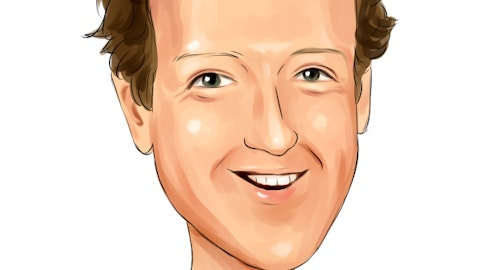Operator: Thank you. The next question is from Jason Bazinet with Citi. You may go ahead.
Jason Bazinet: Just had a quick question on the tech, telco weakness that you called out. When do we begin to lap that? Would you say that’s a second quarter event? I think that’s a first quarter number. Or is it more Q1 of next year?
Philippe Krakowsky: Well, I mean, I think tech specifically, we would have been largely through it. But as I did call out, we had a significant loss at McCann in the telco space, which is then going to extend that into next year. And then I don’t think health falls into the same category. I think health is really just — we expected more from that sector this quarter than we’ve seen, but that’s not a long-term hedge into next year drag.
Jason Bazinet: Okay, thank you.
Philippe Krakowsky: Thank you.
Operator: Thank you. Our next question is from Julien Roch with Barclays. You may go ahead.
Julien Roch: Yes, good morning, Philippe. Good morning, Ellen. Thank you for the question. Two, if I may. I was hoping you could give us the number of employees at Huge and R/GA today. And the second question is margin versus growth next year. So previously, it’s doing 5% top line growth and only come 4% for the full-year if they make that number in Q4 on flat margin. Is that cost including employees are up 4% to 5%, while you’re flat. So as talent and these days investment intake is key to growth in agency land? Could that be an issue for next year?
Philippe Krakowsky: I don’t know that we would break out the by unit employee numbers. I think the second question is a good question. And to Ellen’s point earlier, I mean, we are running a portfolio of businesses. And as you could see, a number of them, quite a few of them, whether it’s media, health, a lot of the experiential PR businesses are performing well for us. And others are going through some challenges. So I don’t know that you approach the comp component of it similarly across the board, and we have it for quite a few years. So we’ve been finding talent in the growth businesses, which means that we’re able to compensate them appropriately. And when you look at the model as it is now, you see a number for us which is an all-in number, and it averages out.
But what you’re seeing in there are a range of outcomes or a range of realities and making sure that we are rewarding and investing the folks who are driving the performance and who are the strong performers shouldn’t be an issue. And there’s very — there’s clarity across our group and all of our operators in terms of how their incentives are very, very directly aligned to our results and what we’re accountable to you all for. People understand where and how they’re earning the compensation. So I don’t see that as a meaningful concern.
Julien Roch: Okay, thank you.
Philippe Krakowsky: Thank you.
Operator: Thank you. And that was our last question. I’ll now turn it back to Philippe for any final thoughts.
Philippe Krakowsky: Thank you, Sue. Again, thank you all for the time. And we look forward to sharing better news with you in February.
Operator: Thank you. This concludes today’s conference. You may disconnect at this time.
Follow Interpublic Group Of Companies Inc. (NYSE:IPG)
Follow Interpublic Group Of Companies Inc. (NYSE:IPG)
Receive real-time insider trading and news alerts




